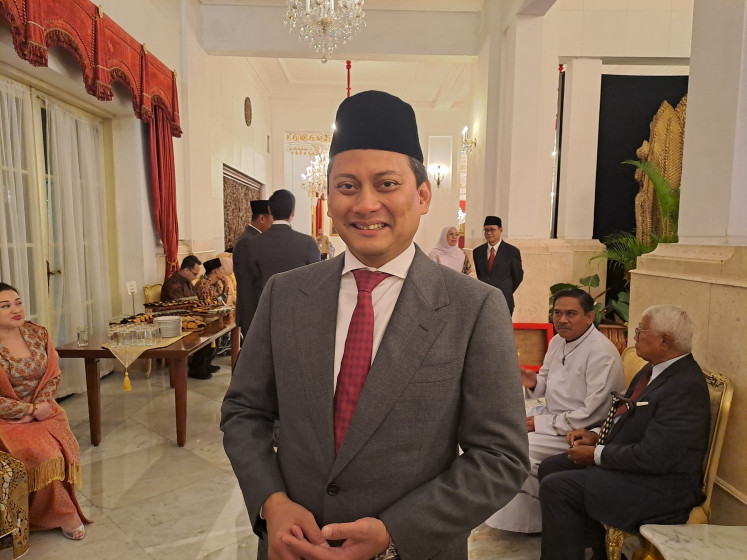Popular Reads
Top Results
Can't find what you're looking for?
View all search resultsPopular Reads
Top Results
Can't find what you're looking for?
View all search resultsSharia banking will need ‘a long time’ to take off in Indonesia
The Islamic finance industry is smaller than one may expect in the country with the largest Muslim population, but a sharia banking road map released by the Financial Services Authority on Monday has received praise from analysts.
Change text size
Gift Premium Articles
to Anyone
A
That said, the experts caution that sharia banking might not take off in the short term, if the regulator relies solely on organic growth.
Bold ideas, such as converting a major state-owned bank into a sharia lender or pushing for more sharia finance in the housing market, could accelerate the process, they argue.
According to the Islamic Finance Development Report published last year, assets in the global sharia financial industry totaled almost US$4 trillion in 2021. Indonesia, however, despite boasting the largest Muslim population in the world, only sits in seventh rank.
The country's sharia financial assets were worth $163 billion in July this year, according to OJK data.
Furthermore, sharia banks hold almost 70 percent of Islamic economy assets globally but only 33 percent in Indonesia.
On Monday, the OJK released a road map laying out its plans for sharia banking, which currently only makes up 7.3 percent of the domestic banking sector by assets.



















